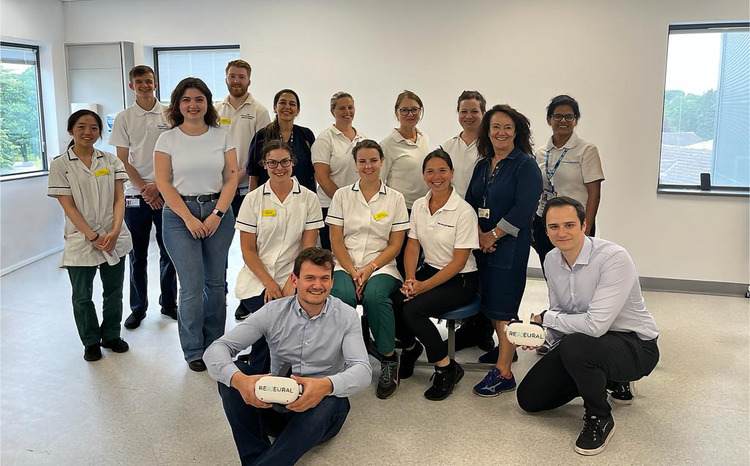Maidstone & Tunbridge Wells lead early CMDP accreditation cohort
- 3 March 2023

Having deployed its first virtual wards in December 2022 using the Luscii platform, leaders from Maidstone & Tunbridge Wells NHS Trust are among the first to do the Certified Medical Developer Program (CMDP) accreditation.
The newly launched Certified Medical Developer Program (CMDP) from Luscii empowers healthcare professionals to create and deploy unique remote monitoring programmes that can help transform patient care at scale. In addition, they can help lower costs and enhance the pace of deployments of virtual wards.
Luscii’s platform helps healthcare professionals monitor patients’ current state of health or recovery based on specific vital sign information. Patients can provide details on blood oxygen levels, blood pressure and other key readings via the Luscii App.
The platform is underpinned by artificial intelligence technology. Algorithms can be configured within programmes to trigger notifications to patients or alerts to healthcare teams, either for measurements that stray outside of safe and expected thresholds or any anomaly in patient responses.
The new accreditation program comes at a key moment for NHS England, who recently announced plans to dramatically scale the use of virtual wards to 50,000 virtual beds in 2024, as part of its plan to recover urgent and emergency care services across the UK.
Luscii is a quick and low low-cost solution for trusts who want to deploy virtual wards themselves for any condition, with no coding required.
Nick Sinclair, director of operations at Maidstone and Tunbridge Wells, said: “The advancement of remote patient care and monitoring through platforms like Luscii can play a major role in this evolution, delivering major improvements to operational efficiency and patient care.
“With Luscii’s new CMD program, we’re immensely excited that for the first time, we have total freedom of development. What this means is the ability to build and adapt our remote patient programs at pace, with the flexibility and scale to meet the specific needs and aspirations of our clinicians.”
Accreditation from the program comes following a six-week digital course. Once completed healthcare professionals can access Luscii’s new self-build software to develop their own remote care programmes for virtual wards.
The first cohort has recently completed the six-week course, and included leaders from Maidstone & Tunbridge Wells NHS Trust.
Daan Dohmen, founder of Luscii, said: “For us, the natural and logical next step in our platform’s evolution is to put the power to adapt, develop, and in some cases, completely reimagine these programs, directly in the hands of the brilliant minds who are on the frontlines of healthcare.
“As a first-of-its-kind self-build platform, we are now giving them the superpower to create the future of healthcare.”




